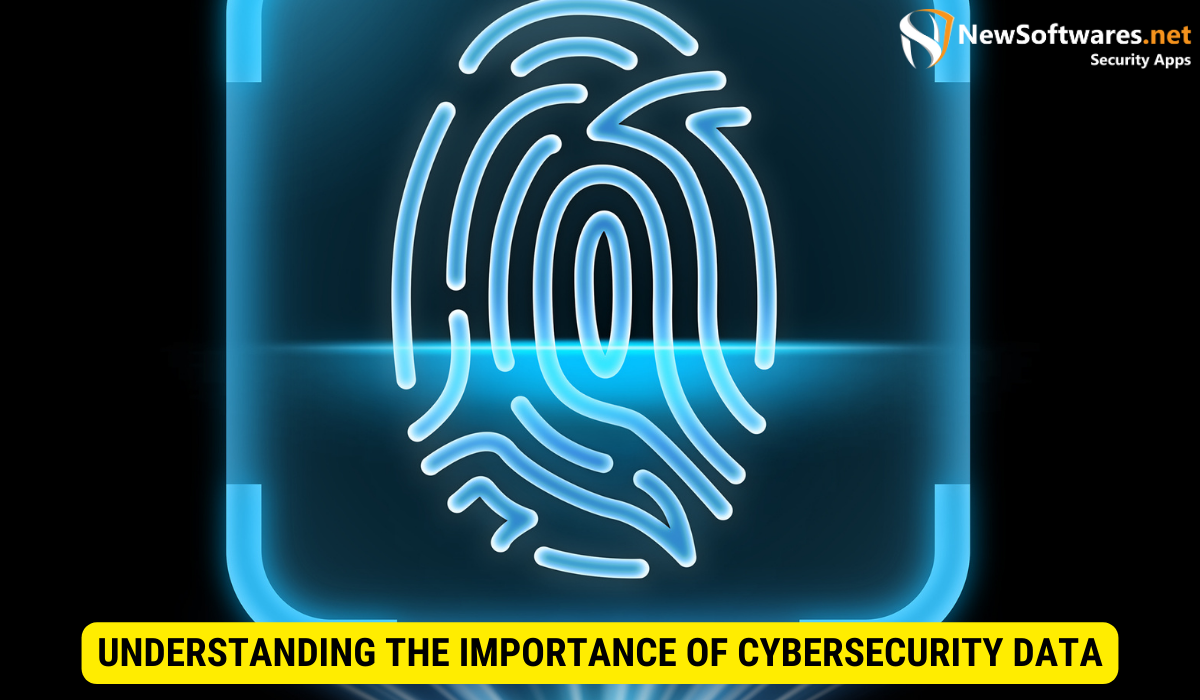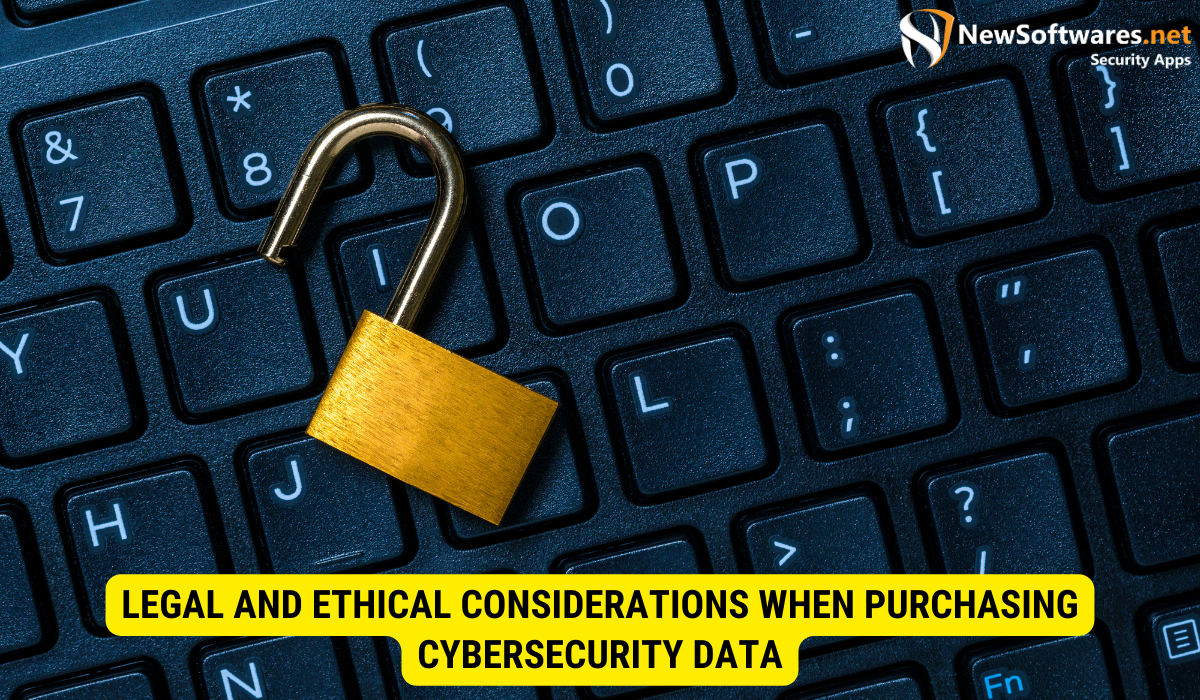In today’s digital age, cybersecurity is of utmost importance. As cyber threats become increasingly sophisticated, it is crucial for businesses to have access to reliable cybersecurity data to protect their digital assets. Fortunately, there are various sources available for purchasing cybersecurity data that can provide valuable insights and help organizations stay one step ahead of potential threats. I will explore the importance of cybersecurity data, the types of data available for purchase, how to evaluate data quality, top vendors in the market, and the legal and ethical considerations associated with purchasing cybersecurity data.
Understanding the Importance of Cybersecurity Data

Cybersecurity data plays a vital role in safeguarding organizations from potential cyberattacks and ensuring the continuity of their operations. It serves as a valuable asset that enables businesses to identify various vulnerabilities and anticipate potential threats. By analyzing cybersecurity data, companies can gain insights into the latest trends and patterns of cyber threats, enabling them to proactively protect their digital assets.
In today’s interconnected world, where technology is deeply integrated into every aspect of our lives, the importance of cybersecurity data cannot be overstated. With the increasing sophistication of cybercriminals and the ever-evolving nature of cyber threats, organizations must stay one step ahead to protect their sensitive information and maintain the trust of their customers.
The Role of Cybersecurity Data in Business
In the modern business landscape, where almost every operation is digitized, cybersecurity data plays a pivotal role in ensuring the smooth functioning of organizations. This data helps organizations identify their weak points and address vulnerabilities before they can be exploited by malicious actors. By leveraging cybersecurity data, businesses can make informed decisions to strengthen their security infrastructure and protect their operations, customer data, and intellectual property.
Imagine a scenario where a company’s cybersecurity data reveals a potential vulnerability in their network infrastructure. Armed with this information, the company’s IT team can take immediate action to patch the vulnerability and prevent any potential cyberattacks. This proactive approach not only protects the company’s digital assets but also saves them from the financial and reputational damage that a successful cyberattack can cause.
Furthermore, cybersecurity data is not only crucial for protecting an organization’s internal systems but also for maintaining compliance with industry regulations and standards. Many industries, such as healthcare and finance, have strict data protection regulations that require organizations to implement robust cybersecurity measures. By analyzing cybersecurity data, businesses can ensure they are meeting these compliance requirements and avoid costly penalties.
How Cybersecurity Data Protects Your Digital Assets
With the increasing frequency and complexity of cyber threats, organizations cannot afford to overlook the importance of cybersecurity data. This data allows businesses to identify potential vulnerabilities, detect and respond to incidents promptly, and mitigate the impact of cyberattacks. By monitoring and analyzing cybersecurity data, businesses can adopt proactive measures to safeguard their digital assets and maintain trust among their stakeholders.
One of the key ways cybersecurity data protects digital assets is through threat intelligence. By collecting and analyzing data from various sources, such as security logs, network traffic, and threat intelligence feeds, organizations can identify emerging threats and adapt their security measures accordingly. This proactive approach helps organizations stay ahead of cybercriminals and minimize the risk of successful attacks.
Cybersecurity data also plays a crucial role in incident response. In the event of a cyberattack, organizations can rely on their cybersecurity data to investigate the incident, understand the extent of the damage, and take appropriate remedial actions. This data can provide valuable insights into the attack vectors, the compromised systems, and the tactics used by the attackers, allowing organizations to strengthen their defenses and prevent similar incidents in the future.
Moreover, cybersecurity data is not just limited to protecting digital assets within an organization. It also helps organizations build trust with their customers and partners. In today’s digital economy, where data breaches and cyber threats are constantly making headlines, customers are becoming increasingly concerned about the security of their personal information. By demonstrating a strong commitment to cybersecurity through the use of data-driven security measures, organizations can reassure their customers that their data is safe and secure.
In conclusion, cybersecurity data is a critical component of any organization’s security strategy. It enables businesses to proactively identify vulnerabilities, respond to incidents effectively, and protect their digital assets. By leveraging cybersecurity data, organizations can stay one step ahead of cybercriminals and maintain the trust of their stakeholders in an increasingly interconnected world.
Types of Cybersecurity Data Available for Purchase
When it comes to purchasing cybersecurity data, organizations have access to a wide range of data sources. Understanding the different types of data available is crucial for businesses to choose the most relevant information for their cybersecurity needs. Here are some key types of cybersecurity data that can be obtained:
Threat Intelligence Data
Threat intelligence data provides valuable insights into emerging threats, attack vectors, and malicious activities. It includes information about malware, phishing campaigns, botnets, and other potential risks. By leveraging threat intelligence data, businesses can proactively identify and prevent cyber threats before they cause harm.
Vulnerability Data
Vulnerability data provides information about weaknesses in software, operating systems, networks, and applications that can potentially be exploited by attackers. By obtaining vulnerability data, organizations can identify and address vulnerabilities in their systems to prevent breaches and data leaks.
Incident Response Data
Incident response data includes information about past security incidents, their causes, and the actions taken to resolve them. Analyzing incident response data can help organizations understand attack patterns, improve incident response procedures, and enhance their overall cybersecurity posture.
Evaluating the Quality of Cybersecurity Data
While purchasing cybersecurity data is crucial, it is equally important to evaluate the quality of the data before making any decisions. Here are some key factors to consider:
Accuracy and Relevance of Data
Ensure that the purchased data is accurate, up-to-date, and relevant to the specific cybersecurity needs of your organization. Outdated or irrelevant data can potentially lead to false conclusions or ineffective security measures.
Timeliness of Cybersecurity Data
Timeliness is critical in the world of cybersecurity. Ensure that the data you purchase is timely, enabling you to detect and respond to threats promptly. Delayed information may lead to missed opportunities to prevent or mitigate the impact of cyberattacks.
Completeness of the Data Set
Check the completeness of the data set to ensure that it covers a wide range of cybersecurity aspects. Comprehensive data sets provide a holistic view of potential threats and vulnerabilities, allowing organizations to implement effective security measures.
Top Vendors for Cybersecurity Data
As the demand for cybersecurity data continues to grow, numerous vendors have emerged in the market. When selecting a vendor, it is essential to consider various factors, including their reputation, data quality, and pricing models. Here are some top vendors in the cybersecurity data market:
Vendor Evaluation Criteria
When evaluating vendors, consider factors such as their experience in the industry, the reliability and accuracy of their data, the range of data offerings, and customer reviews and testimonials.
Pricing Models for Cybersecurity Data
The pricing models adopted by vendors vary. Some offer subscription-based models, while others provide one-time purchase options. It is vital to assess the pricing models to determine the most cost-effective solution for your organization’s cybersecurity needs.
Legal and Ethical Considerations When Purchasing Cybersecurity Data

Data Privacy Laws and Regulations
Before purchasing cybersecurity data, ensure compliance with relevant data privacy laws and regulations. Data protection and privacy are paramount, and organizations should only acquire data from legitimate and authorized sources.
Ethical Use of Purchased Cybersecurity Data
Ensure that the purchased cybersecurity data is used ethically and responsibly. Make sure to adhere to ethical guidelines, respect privacy rights, and protect sensitive information provided by the data sources.
Key Takeaways
- Cybersecurity data plays a vital role in protecting digital assets and ensuring business continuity.
- Threat intelligence, vulnerability, and incident response data are key types of cybersecurity data available for purchase.
- Evaluating the quality of data is crucial, considering factors such as accuracy, timeliness, and completeness.
- Top vendors in the cybersecurity data market should be assessed based on reputation, data quality, and pricing models.
- Legal and ethical considerations include compliance with data privacy laws and responsible use of purchased data.
FAQs
Q: Why is cybersecurity data important?
A: Cybersecurity data helps organizations identify vulnerabilities, anticipate threats, and protect their digital assets. It provides valuable insights into emerging threats and helps businesses make informed decisions to strengthen their security infrastructure.
Q: What types of cybersecurity data can be purchased?
A: Some key types of cybersecurity data available for purchase include threat intelligence data, vulnerability data, and incident response data. These data sources provide valuable information about potential risks, weaknesses in systems, and past security incidents.
Q: How can the quality of cybersecurity data be evaluated?
A: The quality of cybersecurity data can be evaluated based on factors such as accuracy, relevance, timeliness, and completeness. Ensuring that data is up-to-date and applicable to specific cybersecurity needs is crucial for effective decision-making.
Q: What should be considered when selecting a vendor for cybersecurity data?
A: When selecting a vendor, consider their reputation, data quality, range of offerings, and pricing models. Evaluate their experience in the industry and customer reviews to make an informed decision.
Q: What legal and ethical considerations should be kept in mind when purchasing cybersecurity data?
A: Organizations should ensure compliance with data privacy laws and regulations when purchasing cybersecurity data. Additionally, using the data ethically and responsibly, and respecting privacy rights are essential considerations.
Conclusion
In today’s digital landscape, cybersecurity data has become a valuable asset for organizations aiming to protect their digital assets. By purchasing and leveraging cybersecurity data from reliable sources, businesses can stay one step ahead of potential risks and prevent cyber threats. It’s essential to evaluate the quality of data, select reputable vendors, and comply with legal and ethical considerations when purchasing cybersecurity data. By doing so, organizations can enhance their security posture and safeguard their operations in an increasingly digital world.
